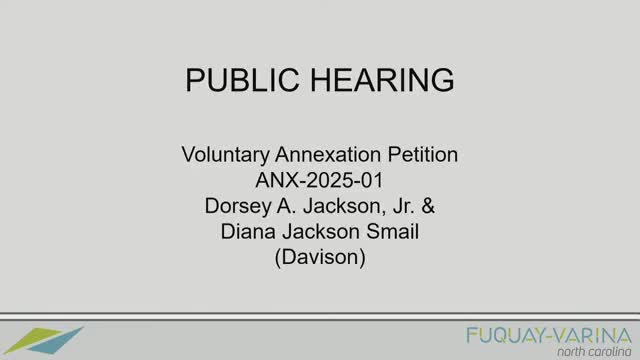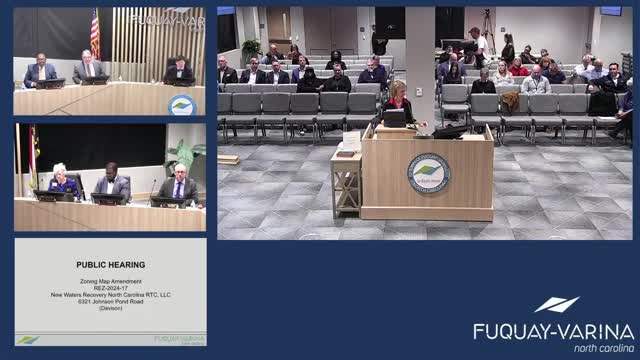Article not found
This article is no longer available. But don't worry—we've gathered other articles that discuss the same topic.

Fuquay Varina board approves annexation, three rezoning requests and waterline contract; consent agenda passes

Board approves rezoning for New Waters Recovery; plan preserves historic Johnson house and limits patient program

